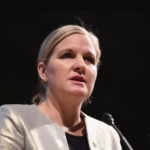Turning to the U.S. Department of Education’s Office for Civil Rights (OCR), 48-year-old Michigan mother Rebecca sought help with her 13-year-old adoptive son who has fetal alcohol syndrome, ADHD, and other mental health diagnoses needing specific educational support. Last fall, his problems occasionally caused him to act aggressively against items, staff, or peers, leading to many suspensions. Families battling to provide basic needs for their children have resulted from these school cuts.
Rebecca claims that her son was kept apart from his friends for months, only seeing special education teachers and a few staff members. She complained to OCR in October 2024 claiming that her kid had been denied a free suitable public education and that the institution had broken federal handicap laws. She said he was only permitted to visit a one-on- one segregated classroom two hours a day. His hours were progressively raised, yet he stayed alone. The school system answered no calls seeking comments.
Rebecca’s case went what-wise?
Rebecca depended on an OCR attorney from the Cleveland office to help mediate with the school system even though she had private counsel and an education advocate. But the Trump government sacked the whole Cleveland OCR staff—including the attorney managing Rebecca’s case—before any kind of settlement could be achieved. Rebecca’s case and many others like it were placed in flux by this sudden decision.
“I have nowhere else to turn for this child,” she said. “I don’t think that’s fair; they are playing politics with my small boy.”
Why did the Trump Administration target the Department of Education?
Shocking many parents and teachers, President Donald Trump issued an executive order assigning Education Secretary Linda McMahon instructions to start “facilitating the closure” of the Department of Education. Congress has the authority to abolish a government agency, but the decision is expected to set off legal battles.
Press Secretary Karoline Leavitt stressed that although the department would not be totally closed, it will be much reduced with an emphasis on “critical functions,” such federal student loans. She also said OCR will have a much smaller scale and scope.
The government employed a process called a reduction in force on March 11 to reduce the department’s employment. Already affecting families and children all around are these educational cuts. Saying it showed a “commitment to efficiency, accountability, and ensuring that resources are directed where they matter most: to students, parents, and teachers,” McMahon said in defending the action.
How would these cuts affect the Office for Civil Rights?
Among the sections most severely disrupted was OCR. Among its twelve regional offices—which included those in big cities such as New York, Philadelphia, Chicago, and San Francisco—seven were closed. Emails alerted the whole Cleveland office that their unit was “being abolished” and their positions were eliminated.
One Cleveland attorney handling disability issues said the circumstances made one “completely desperate.” They worried about the effects on not only specific cases but also more general systematic problems. “The effect of every individual case is sometimes much bigger in terms of educating the school and making good for others in the district,” the attorney stated.
Parents and OCR lawyers have already been battling a dwindling staff and an increasing caseload The OCR got a record 22,686 complaints in fiscal year 2024 although its staff kept declining. OCR had 1,101 full-time workers in 1981. Only 548 survived by 2024.
“We were already so incredibly inundated with cases,” the Cleveland lawyer said. “I never felt good about our handling time. The current education cuts will make this impossible to complete.”
What New Administration Priority Calls for Attention?
There were indications that OCR’s mission was changing before Trump’s executive order. Staff members were told to give antisemitism top priority. Acting assistant secretary for civil rights Craig Trainor also declared a priority on looking at transgender athletes at colleges to challenge what he called “radical transgender ideology.”
In an attempt to eradicate diversity, equity, and inclusion (DEI) practices—which the government believes to be exclusive—the Department of Education also started investigations into more than 50 universities on March 14.
Employees who stayed at OCR claimed not receiving much direction on handling hundreds of thousands of outstanding cases. Cases affecting racial minorities or those with impairments scared them would not get the required attention. Many parents and students lack the necessary support due to the uncertainty these educational cuts generate.
In what ways are parents and supporters rebating?
Disability advocates and parents are not allowing the Department of Education to lose without a struggle. One of two plaintiffs in a lawsuit the Council of Parent Attorneys and Advocates brings is Alabama mother and disability advocate Nikki Carter. Over the widespread employment losses, the complaint names Trainor, McMahon, and the Department of Education as defendants.
Carter, who had brought a racial discrimination lawsuit to OCR in December 2022, claimed that under the previous government, the office already suffered with backlogs. Her case—and many others—stalled entirely when the new government came in.
” Throughout the whole process, there was a lack of communication,” she claimed. “That situation got much worse and even more challenging when the Trump administration entered the picture.”
Though Carter is unhappy with OCR, she thinks the office is essential to guard against discrimination against students. “Children, families, as well as advocates—they don’t get due process,” she declared. “They are being denied just fundamental federal educational rights. Our only hope is to go to the federal government when local and state levels fail to do that.”
Rebecca and Her Son’s Future?
Since then, Rebecca moved her kid to a district school catering to emotionally challenged students. She still wants OCR, though, to negotiate special tutoring for him and teach district officials how to assist youngsters just like him.
She recently discovered that her son’s case was being moved to the still-active Denver office, but she hasn’t heard anything yet.
“He was treated so poorly and differently because of the way his brain was structured,” she claimed. “I want somebody held accountable for the way he was treated.”








